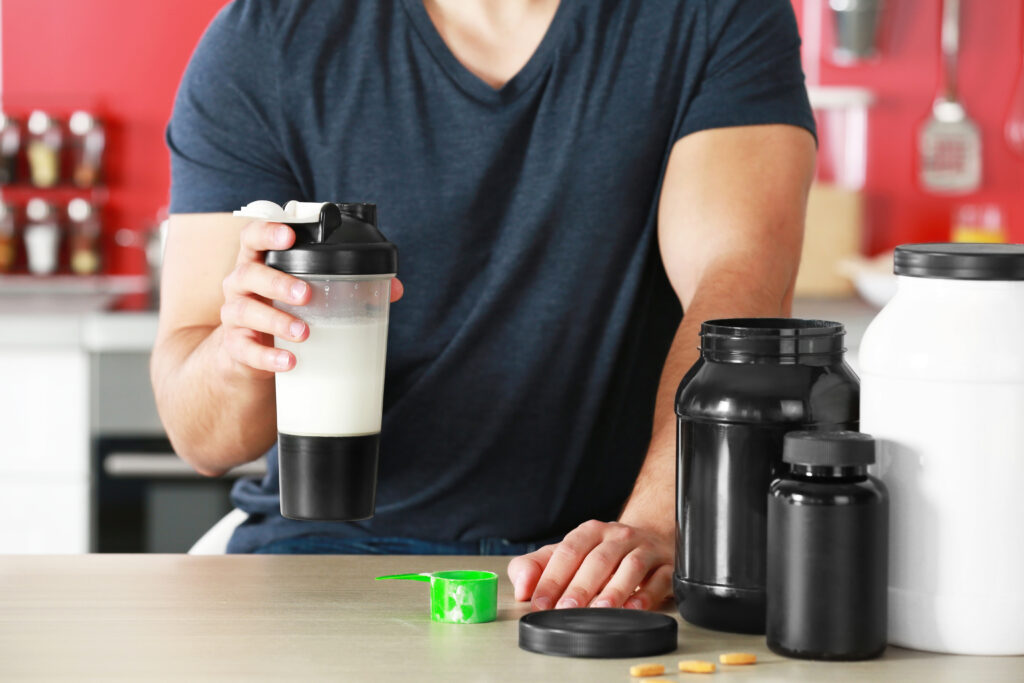Introduction
Creatine is one of the most widely researched and trusted supplements in the fitness industry. While often associated with bodybuilders and powerlifters, creatine offers benefits for all kinds of exercisers — from the casual gym-goer to elite athletes. On a personal note, I started taking the supplement again myself for recovery, cognitive purposes and to improve strength. Within the first month, I saw an increase in the volume of work (sets x reps. x load) I was doing at the gym. But what exactly does it do, and should you be taking it?
What is Creatine?
Creatine is a naturally occurring compound found in muscle cells. It helps your muscles produce energy during high-intensity exercise or heavy lifting. While the body synthesizes some creatine from amino acids, most people though typically consume additional creatine from food sources like red meat and fish. Supplementation, however, provides a more effective way to fully saturate muscle stores.
Why Take Creatine?
1. Increased Muscle Strength & Power
Creatine has been shown to significantly improve strength, increase lean muscle mass, and help muscles recover more quickly during exercise. This makes it an ideal supplement for resistance training and high-intensity interval workouts. A meta-analysis of over 20 studies confirmed that creatine supplementation can enhance maximal strength and endurance performance during repeated sprints or heavy lifts [1].
2. Enhanced Recovery & Reduced Fatigue
Creatine helps reduce muscle cell damage and inflammation after exhaustive exercise, accelerating recovery time. A 2021 review highlighted creatine’s role in reducing exercise-induced muscle damage and soreness [2].
3. Cognitive & Neurological Benefits
One of the lesser-known benefits of creatine is its positive effect on brain health. Emerging evidence shows it may improve cognitive performance, especially under stressful conditions like sleep deprivation. A study published in Psychopharmacology found that creatine supplementation improved working memory and intelligence scores in healthy adults [3].
4. Safe & Effective
Creatine monohydrate is safe for long-term use in healthy individuals when taken at recommended doses (typically 3–5 grams per day after an optional 5–7 day loading phase of 20 grams/day). Decades of research support its safety, with no significant adverse effects in the general population.
Who Should Use Creatine?
While athletes and strength trainers benefit the most, creatine may also be helpful for:
- Older adults looking to preserve muscle mass and prevent sarcopenia
- Vegetarians and vegans, who often have lower natural creatine stores
- Individuals recovering from injuries or looking to improve exercise tolerance

Final Thoughts on Creatine
Creatine isn’t just for hardcore lifters anymore — it’s for anyone serious about performance, recovery, and overall health. With strong scientific support, affordable pricing, and minimal side effects, creatine monohydrate remains one of the best supplements available today. Finally, remember to increase your water intake when using creatine, this is very important. Here’s why:
Creatine Increases Intracellular Water Retention
When you take creatine, it’s stored in your muscles along with water. This happens because creatine pulls water into muscle cells — a process called cell volumization. This can make muscles look fuller and more pumped, but it also means your body needs more water to stay balanced.
Result: Your total body water shifts more into muscle cells, which may leave less available for other organs or tissues if you’re not hydrating adequately.
Supports Kidney Function
Because creatine increases water retention in muscles, some users may be at a slightly higher risk of dehydration, especially during intense workouts or in hot environments, if they don’t increase water intake. While the evidence isn’t conclusive that creatine causes dehydration, it’s still a good practice to drink extra water as a precaution.
Exercise + heat + creatine = higher fluid demands
Supporting Kidney Function
Although creatine is safe in healthy individuals, your kidneys still process the byproducts of creatine metabolism (like creatinine). Staying well-hydrated supports kidney function and helps flush out waste products efficiently.
Enhances Creatine Absorption & Effectiveness
Water helps dissolve and transport creatine through the bloodstream to the muscles. Taking creatine with plenty of water (and ideally with carbohydrates or a meal) can improve its uptake into muscle cells.
How Much Water Should You Drink?
There’s no one-size-fits-all, but a good rule of thumb is:
- Drink at least 3–4 liters (100–130 oz.) per day while on creatine, especially if you’re active.
- Drink an extra 16–20 oz. around your workout sessions.
As always, Pay attention to urine color — pale yellow is a good indicator of hydration. If it’s dark, drink more.
Jefit: Embrace the Grind
If you’re serious about building muscle, tracking workouts, and reaching your fitness goals in 2025, the Jefit strength training app is the perfect tool to help you succeed. With over 20 million downloads and 12+ million users, Jefit is one of the best tracking apps for strength training. Recognized as the Best Fitness App of 2024 and featured in Men’s Health, PC Magazine, and USA TODAY, Jefit stands out with its user-friendly design, advanced workout tracking, and over 42,000 five-star ratings. Whether your goal is to gain strength, track progress, or optimize protein intake, Jefit has everything you need. Remember, sustainable progress is built on consistency, science, and patience.
References
- Branch, J.D. (2003). Effect of creatine supplementation on body composition and performance: a meta-analysis. International Journal of Sport Nutrition and Exercise Metabolism, 13(2), 198–226.
- Rawson, E.S., & Volek, J.S. (2021). Effects of creatine supplementation and resistance training on muscle strength and weightlifting performance. Journal of Strength and Conditioning Research, 35(7), 2032–2041.
- Rae, C. et al. (2003). Oral creatine monohydrate supplementation improves brain performance: a double–blind, placebo–controlled, cross–over trial. Psychopharmacology, 167(3), 268–269.
- Optimal Recovery Time for Strength Training - January 21, 2026
- Train Smarter With MED: Minimum Effective Dose Strength - January 14, 2026
- Auto-Regulated Strength Training: A Smart Way to Lift - January 7, 2026
